At Brooklyn's Palestinian-owned eatery Ayat, a Shabbat dinner and discourse around war
Jan. 29, 2024, 3:14 p.m.
Hundreds turned out for the free event, billed as a chance to break "bread" and "barriers."
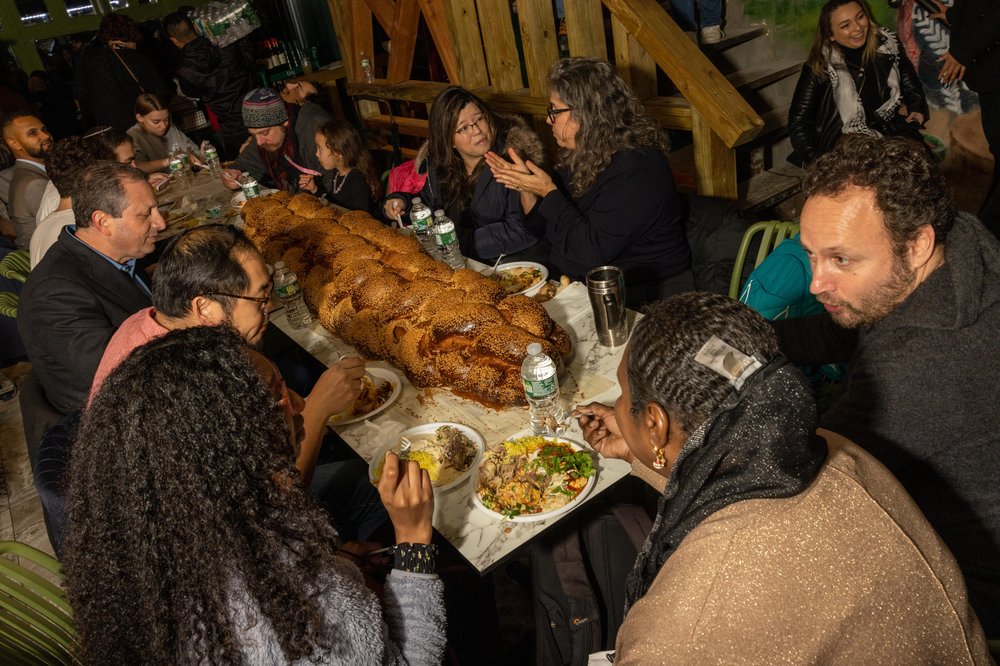
The free Shabbat dinner at the Palestinian-owned restaurant Ayat in Ditmas Park was billed as an evening for breaking bread and barriers. Many attendees Friday – hundreds of Jews, Arabs, and others grieving the war in Gaza and Hamas’ Oct. 7 attack on Israelis – said the gathering was just that, though the night was not without discomfort.
“The whole idea of the event is to bring people together,” said owner Abdul Elenani, 31, who picked up what he said was the $40,000 bill, his thanks to those who stuck by the restaurant after it was deluged with one-star reviews following the Hamas attack. “F--- politics. Let's talk about life. Let's talk about each other.”
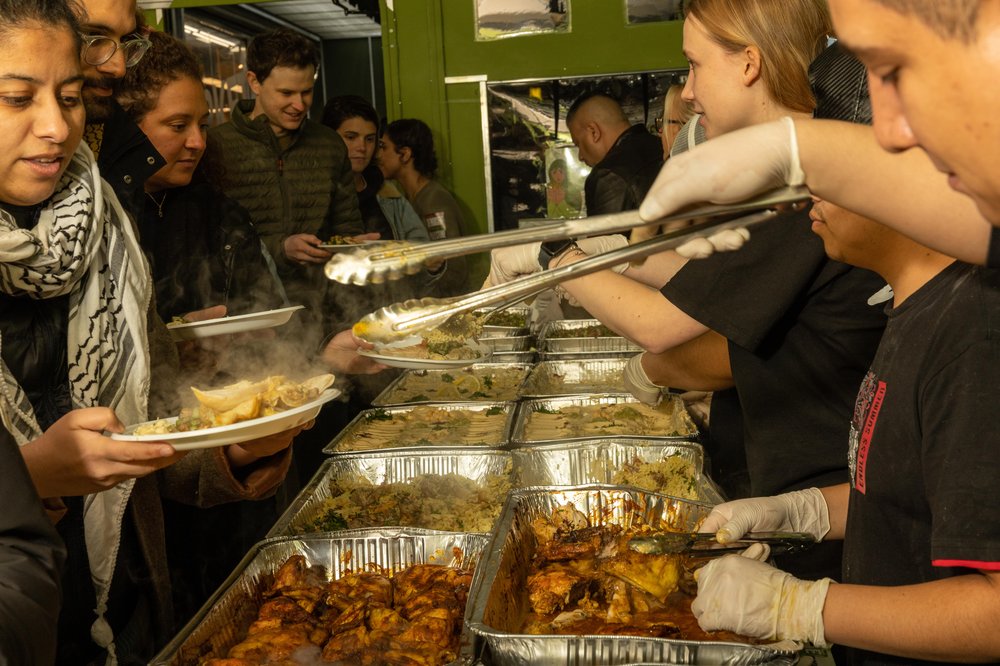
Strangers struck up conversations in the around-the-block line, passed around Tupperware containing Middle Eastern sweets, and cheered each other on as they tore off hunks of bread from a 6-foot-long loaf of challah.
Several diners said they came in search of a glimpse of hope and connection, amid fear of a widening conflict in the region. They ate, talked, sang, prayed and mingled past midnight — a rare coming together in a city where so much of the discourse about the violence has come over megaphones.
Michael Hirschhorn, 64, of Prospect Heights, said he was looking for “any light in the dark.” Eli Sheba, 31, an Israeli living in Brooklyn, said she wanted to affirm “anything that could bring hope during a time where reality is kind of crushing.”
Prayers led by Middle Eastern and North African Jews
Dozens of Jewish volunteers pitched in to help, printing off handouts of Torah selections, singing passages in Hebrew, and ensuring there was kosher food and tech-free zones for those following Shabbat rules.
Before dinner began at 9 p.m., over 100 people — including hijab-wearing women alongside men in yarmulkes — packed inside a massive white pop-up tent on the sidewalk outside for a Jewish prayer service.
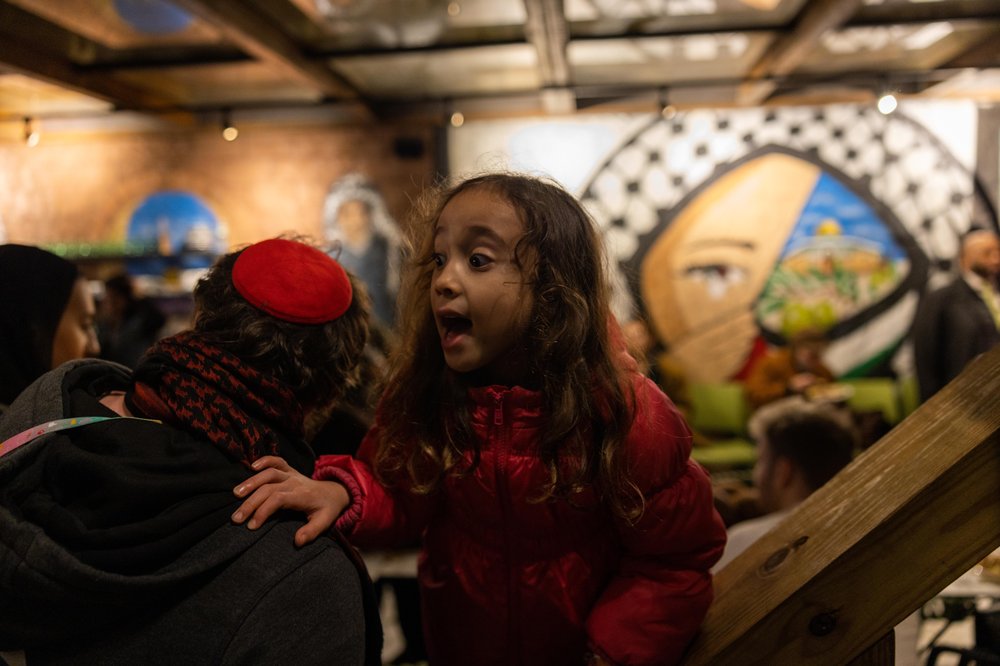
Around 10 p.m., as a Klezmer band set up a tent outside, dozens of attendees gathered on the second-floor of the restaurant for baqashot, a set of songs and prayers traditionally recited in winter months by sephardic Jews, whose ancestors were expelled from Spain and fled to North Africa and the Middle East.
The night fell on Shabbat Shirah, “the Shabbat of song,” which celebrates safe passage of the Israelites across the Red Sea and out of Egypt where they were enslaved.
The pre-dinner prayer service ended with attendees reciting Mourner’s Kaddish, a traditional Jewish prayer for the dead — an especially striking moment as the death toll in Gaza continues to mount. Over 26,000 Gazans have been killed in the war, according to the Hamas-run Health Ministry. Israel’s Foreign Ministry has said about 1,200 Israelis were killed by Hamas militants during its Oct. 7 attack.
The prayers, sung in traditional Arabic music mode, were led by a grassroots collective of mizrahi and sephardi Jews in Brooklyn who aim to preserve Jewish traditions from their families’ homelands in the Middle East and North Africa. The group has previously organized parties to celebrate Mimouna, a North African Jewish festival held to mark the end of Passover.
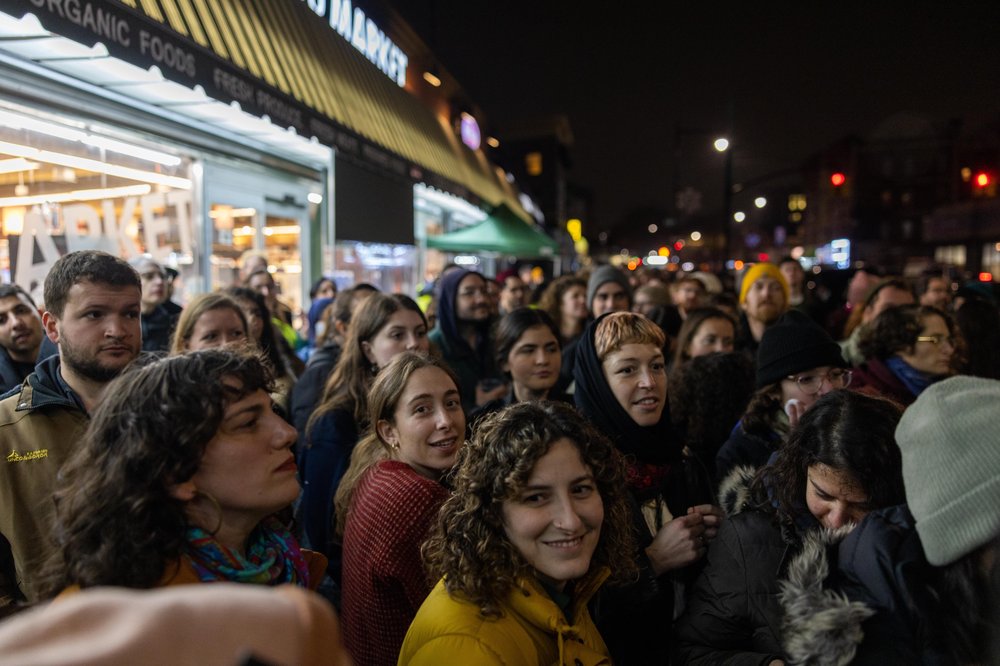
“I've been doing a lot of work in terms of reclaiming an actual hyphenated Jewish-Arab identity,” the main cantor Laura Elkeslassy, who grew up in France and whose relatives emigrated from Morocco to Israel, said. “Those stories are oftentimes very much erased.”
Ismael Ouhabaz, 20, a CUNY student who grew up in Morocco said he was stunned by Elkeslassy’s accent as she sang.
“For a moment, I thought we were in Casablanca,” he said, grinning. “That was really something — the accent that she has, the song as a whole, the spirit in the room. It was very magical.”
For others, including Gabriel Hirschhorn, a Jewish college junior from Brooklyn, the Sephardic melodies were new to him. That’s even for common prayers like the Shema, an affirmation of God and a centerpiece of many Jewish services. But he said the songs were “beautiful.”
But a handful of attendees opted to leave, upset by the prayer leaders’ framing of the conflict in Gaza as a “genocide,” including friends of Gabriel’s father, Michael, of Prospect Heights.
“If I were a rabbi and I was asked to lead this service, I would have thought in a bigger tent way,” the elder Hirschhorn said. “And purposely use language that would help not presume who’s in the room and help everybody feel this is a night to put aside some differences and come together.”
Strangers drinking and eating together
Aylie Yousif, 27, and Nailah Khan, 21, locked eyes in line when they realized they were talking about the same thing in their own separate groups: The war in Gaza.
“We saw into each other’s souls in that moment,” joked Yousif, the child of Iraqi Christian and Israeli Jewish immigrants.
“She looked at me, and it was like an immediate zap,” said Khan, a hijabi woman, and a second-generation Bangladeshi who lives in the neighborhood.
They ended up sitting together at dinner, passing around containers filled with Tunisian almond rosewater cookies from another stranger. Khan’s sister and Yousif’s longtime friend from Michigan joined them, laughing about tummy aches discussing panels they’d attended at the People’s Forum, an educational and activism space in Midtown.
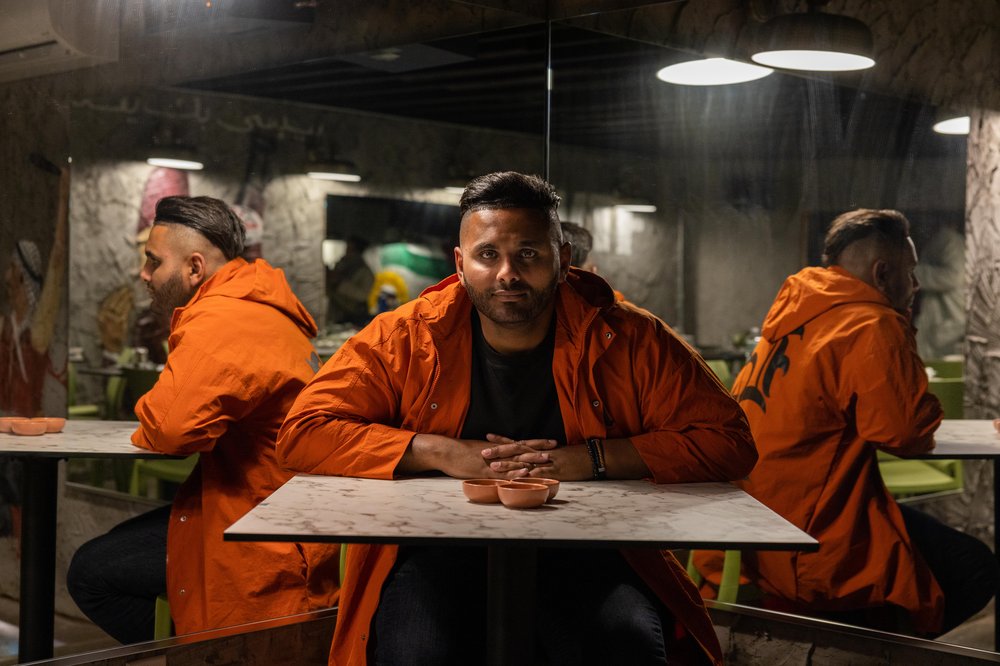
“Ayat is the Holy Land!” at one point cheered Yousif, of Astoria, to another stranger passing by.
Ignacio Choi and Enrique De la Paz also met, along with a few other men, while in line outside the restaurant. Another new acquaintance bought a bottle of wine to sip while they waited. The group’s conversation, which stretched for hours throughout the night, meandered from topics about the military implications of the war in Gaza, the incongruity of heaping plates full of food as Gazans starve, and the true meaning of community.
Many of the diners had attended some of the dozens of pro-Palestinian protests that swept the streets of the city in recent months. Some, like Choi, had organized several demonstrations.
“This is the beginning of something here,” said Choi, a German-born immigrant living in Brooklyn. “Of something rising out of political engagement.”
Toward the end of the gathering, when asked if the evening successfully bridged divides, the owner Elenani mentioned an hour-long conversation he had with an Israeli woman.
She approached and asked him to rename the seafood section of his menu, currently titled “From the River to the Sea,” a pro-Palestinian slogan that has incensed supporters of Israel, and sparked death threats against him in recent months.
“I think I won her over,” he said, adding that the conversation ending with a big hug. “And now she wants to have dinner with me.”
As war grinds on in Gaza, many in Brooklyn's ‘Little Palestine’ feel the sting 450 demonstrations on the Israel-Hamas war have taken place in NYC, officials say NYC public schools warn staff about political speech before student walkout over Israel-Hamas war